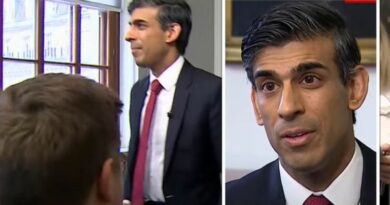House Democrats aim to pass $1.9 trillion Covid relief bill on Friday
- House Democrats plan to pass their $1.9 trillion coronavirus relief bill by Friday.
- The Senate aims to approve the package and get it to President Joe Biden's desk before March 14, when key unemployment programs expire.
- Republicans have questioned the need for nearly $2 trillion more in spending and argued Democrats have pursued goals unrelated to the pandemic.
House Democrats plan to pass their $1.9 trillion coronavirus relief bill on Friday as lawmakers try to prevent unemployment lifelines from expiring next month.
"The American people strongly support this bill, and we are moving swiftly to see it enacted into law," House Majority Leader Steny Hoyer, D-Md., said in a statement posted to Twitter on Tuesday night.
The package includes $1,400 direct payments to most Americans, a $400 per week jobless benefit supplement and an extension of programs making millions more Americans eligible for unemployment insurance. It also puts $20 billion into Covid-19 vaccinations, $50 billion into testing, and $350 billion into state, local and tribal government relief.
The plan as of now would hike the federal minimum wage to $15 an hour by 2025. The provision may not survive in the final bill.
Democrats have moved to pass the legislation on their own through budget reconciliation, which requires a simple majority in a Senate divided 50-50 by party. They have argued they cannot wait to ease economic pain while they try to strike a deal with the GOP.
Republicans have questioned the need for nearly $2 trillion more in spending as they point to vaccinations putting the country on a path to a broader reopening.
"A lot within this bill is a waste or a wish list from the progressives," House Minority Leader Kevin McCarthy, R-Calif., contended during a CNBC "Squawk Box" interview Wednesday morning.
Democrats have pushed for another relief package as the U.S. ramps up its vaccination effort. More than 44 million people have now received one dose, and nearly 20 million have had two, according to the Centers for Disease Control and Prevention.
While the country has made progress on building immunity, it is still recording about 71,500 Covid-19 cases and more than 2,000 deaths each day, according to a seven-day average calculated by CNBC using data from Johns Hopkins University. More than 500,000 Americans have now died from the disease.
As much of the country leaves economic restrictions in place to prevent infections, more than 18 million people were receiving unemployment benefits as of earlier this month. More than 150 CEOs in New York urged passage of the relief plan on Wednesday, saying "more must be done to put the country on a trajectory for a strong, durable recovery."
Democrats will next take the formal step of advancing the bill through the House Rules Committee and to the full chamber on Friday morning. Party leaders aim to send the legislation to the Senate later in the day.
Senate Majority Leader Chuck Schumer, D-N.Y., has predicted the Senate will approve the bill and send it to President Joe Biden before March 14. Programs putting in place a $300 per week unemployment enhancement, an expansion of insurance to gig workers and self-employed individuals, and an increase in the number of benefit weeks formally expire on the date.
Schumer on Tuesday said he aims to keep his caucus together as Sens. Joe Manchin, D-W.Va., and Kyrsten Sinema, D-Ariz., oppose a $15 per hour minimum wage. A single Democratic vote against the bill would sink it.
"I've made a pitch today to our entire caucus and I said that we need to pass this bill, the American people, the American public demands it," Schumer said. He later held up his flip cellphone when asked how he manages an evenly split Senate.
The Senate parliamentarian is expected to rule this week on whether Congress can pass a minimum wage increase under the budget reconciliation process.
Subscribe to CNBC on YouTube.
Source: Read Full Article


